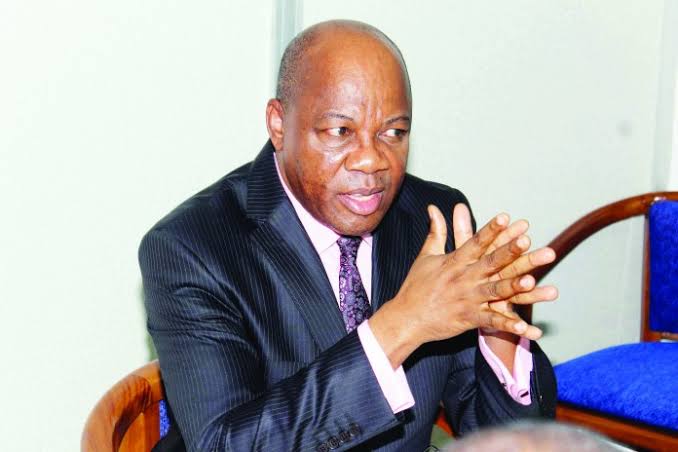Olisa Agbakoba, a senior advocate of Nigeria (SAN), says there is no basis for the creation of Economic and Financial Crimes Commission (EFCC).
Agbakoba asserted that the creation of EFCC amounts to duplication of government agencies as the commission performs the functions of the police special fraud unit.
Agbakoba made the assertion on Thursday during a media briefing in Lagos state.
For days on end now, EFCC and Agbakoba have been at loggerheads over an alleged fraud case linked to Ali Bello, identified as a nephew of Yahaya Bello, governor of Kogi.
On December 15, EFCC arraigned Ali Bello and one Dauda Suleiman on a 10-count charge bordering on alleged misappropriation and money laundering.
The anti-graft body claimed the duo, alongside one Abdulsalami Hudu, a cashier at the Kogi state house who is now at large, withdrew N10.2 billion from the state’s treasury for personal use.
Reacting to the incident, Agbakoba said it was illegal for EFCC to probe how a state spends its money, adding that only the Independent Corrupt Practices and Other Related Offences Commission (ICPC) and state assemblies have the responsibility to probe state expenditure.
Responding to Agbakoba’s comment, EFCC said the SAN is vilifying the commission’s commitment to tackling corruption.
‘EFCC SHOULDN’T PERFORM POLICE FUNCTIONS’
Speaking on Thursday, Agbakoba said the anti-graft agency is performing the same duties as the police special fraud unit.
The senior advocate said since the EFCC is an agency of the federal government, it does not have the power to prosecute offences under the purview of state governments.
“So, the question would be, if the EFCC is created by the federal government can it then prosecute state offences?” he asked.
“The supreme court, in many of its decisions, has held that federalism means two autonomous and independent governments, and if that is correct, the EFCC does not have the right to go to the state and examine their accounts.
“Anybody can read section 46 of the EFCC Act and Section 36(12) of the 1999 Constitution. Section 36(12) states that all offences must be defined and when you now read Section 46, you ask yourself if it complies with Section 36(12) because it does not.
“So, part of the prayers I would seek in court is that EFCC ought not to exist in the first place because it is not a branch of the police and that the job done by the EFCC is the same one being done by the Police Special Fraud Unit.
“My other prayer would be whether the national assembly can make laws for the federation and to what extent can the national assembly, which is an arm of the federal government, make laws authorising a federal agency to exercise powers as if it were a state agency.
“So, all these contradictions should make the presidential candidates tell Nigerians what they are going to do about the constitution because it is defective.”
Speaking further, the lawyer said he has nothing personal against the anti-graft agency and that he is ready to engage Abdulrasheed Bawa, the agency’s chairperson, on the issue
